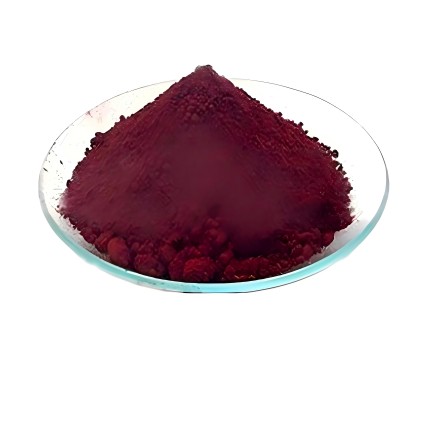Vitamin B12 is a water-soluble vitamin that is key in supporting red blood cell production, nerve function, and DNA synthesis.


Vitamin VBl2 CAS#68-19-9
Vitamin B12 is a water-soluble vitamin that is key in supporting red blood cell production, nerve function, and DNA synthesis.
Vitamin B12 (cobalamin) is a water-soluble vitamin with the appearance of a dark red or dark red crystalline powder, free of foreign matter and odor. It is an important nutrient that is essential for maintaining human health. Vitamin B12 plays an important role in multiple physiological processes. First, it is essential for the production of red blood cells. Vitamin B12 participates in the development and maturation of red blood cells and helps prevent anemia. Vitamin B12 deficiency can lead to insufficient red blood cell production, which can cause anemia symptoms such as fatigue, weakness and dizziness. Secondly, vitamin B12 is also extremely important for the health of the nervous system. It supports the normal function of the nervous system and helps maintain the integrity of the nerve myelin sheath, thereby preventing nerve damage and degeneration of the nervous system. Studies have shown that vitamin B12 helps maintain cognitive function and memory and reduces the risk of neurodegenerative diseases. Vitamin B12 also plays a key role in DNA synthesis. It participates in the normal division of cells and the biosynthesis of nucleic acids, which helps repair and regenerate cells.
At the same time, vitamin B12 helps reduce the risk of cardiovascular disease by participating in the metabolism of homocysteine. High levels of homocysteine are thought to be associated with an increased risk of cardiovascular disease, so vitamin B12 supplementation can help regulate this biochemical marker. In addition, vitamin B12 also plays a role in metabolism. It promotes the metabolism of carbohydrates, fats, and proteins, supporting energy production in the body. Vitamin B12 is involved in protein biosynthesis and helps convert and utilize amino acids in the body, which in turn supports muscle health and function. Vitamin B12 has a wide range of uses. As a dietary supplement, it helps meet the body's vitamin B12 needs, which is especially important for vegetarians and the elderly. Vitamin B12 is also often added to food fortification to ensure the nutritional value of food. In medicine, vitamin B12 is used to treat and prevent health problems caused by deficiency, such as anemia and neurological diseases. Vitamin B12 is also used in the field of beauty. It is added to some skin care and beauty products to help the skin maintain a healthy glow and elasticity. Its antioxidant properties and ability to promote cell regeneration make it a beneficial ingredient in skin care products, which can improve skin texture and reduce the appearance of wrinkles.
Our professional sales team are waiting for your consultation.